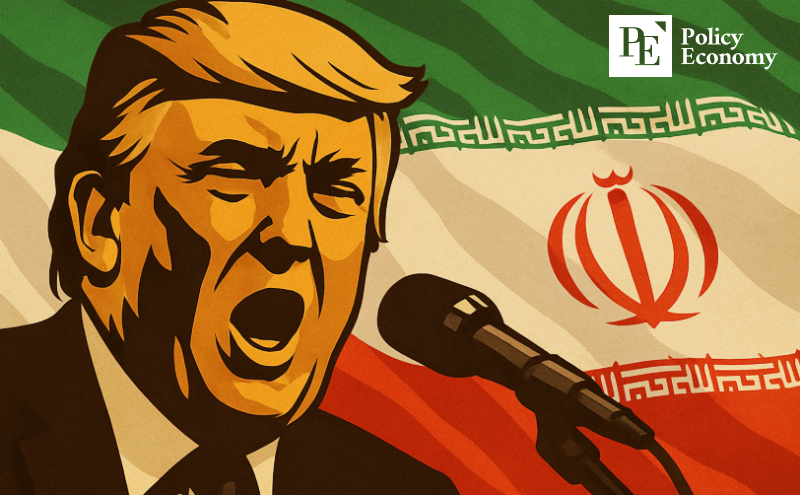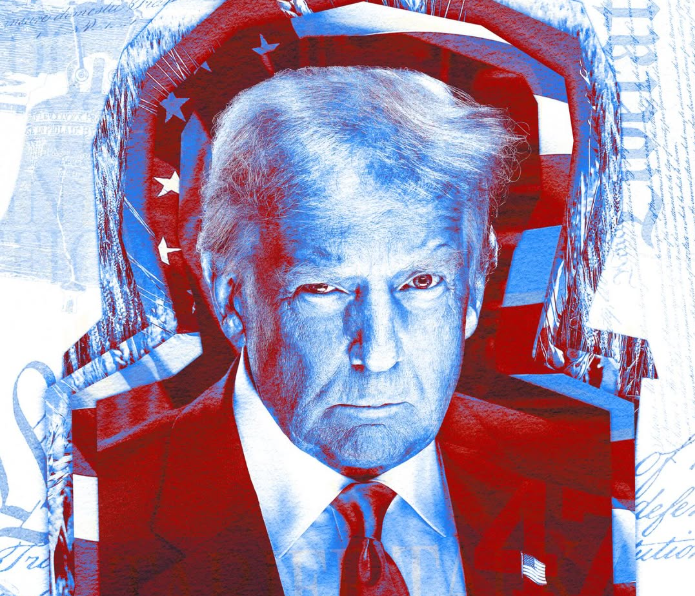Trump: 'Countries purchasing Iranian oil will face sanctions,' directly targets China, the largest importer.
Input
Modified
Trump warns the world against buying Iranian oil" US applies pressure amid deadlock in U.S.-Iran nuclear talks Some analyses say, "The real target of Iran sanctions is China"

U.S. President Donald Trump has warned that countries or individuals importing Iranian oil and petrochemical products will face immediate secondary sanctions. This is effectively a pressure tactic aimed at China and stands in contrast to the recent U.S. position promoting de-escalation in trade tensions with China.
Trump Warns of Secondary Sanctions on Buyers of Iranian Oil
On May 1 (local time) - President Trump posted on his social media platform, Truth Social:
“Warning: Immediately halt all purchases of Iranian oil or petrochemical products.”
He added, “Any country or individual purchasing even a small amount of Iranian oil or petrochemical products will be subject to immediate secondary sanctions and will no longer be able to conduct any form of transaction with the United States.”
This announcement came just after the postponement of the fourth round of nuclear talks with Iran. Omani Foreign Minister Badr Al-Busaidi stated on X (formerly Twitter) the same day, “Due to logistical reasons, the U.S.-Iran negotiations scheduled for the 3rd will be rescheduled,” and added, “A new date will be announced once both sides reach an agreement.” Al-Busaidi, who has mediated the previous three rounds, did not disclose the specific reason for the delay. Iranian Foreign Ministry spokesperson Esmail Baghaei confirmed that the postponement was made at the request of the Omani foreign minister.
Secondary Sanctions Signal Pressure—and a Message to China
The U.S. secondary sanctions regime targets not only Iranian entities but also third parties doing business with them, cutting them off from access to the U.S. financial system and market. Trump’s move is widely seen as an effort to pressure Tehran back to the negotiating table. He has previously threatened military strikes on Iranian nuclear facilities should talks fail, while Iran has escalated its enrichment of uranium to weapons-grade levels, effectively stalling negotiations.
Observers note that the sanctions may also be aimed at China, Iran’s largest oil customer. Although Trump did not mention China by name in his post, the U.S. State Department has repeatedly emphasized Beijing’s role. Axios reported that while Trump avoided directly referencing China, the State Department confirmed it is “by far” the largest importer of Iranian oil—estimated at over 1.6 million barrels per day.

China’s “Relabeling” Tactics Under Scrutiny
This is not the first time such measures have been introduced. During Trump’s first term, China appeared to comply publicly with sanctions while secretly importing Iranian oil via “ghost fleets” and third-country intermediaries. More recently, the U.S. Energy Information Administration (EIA) raised flags about suspiciously high crude imports from Malaysia.
According to a February EIA report, China imported an average of 1.4 million barrels per day (bpd) from Malaysia in 2023—far exceeding Malaysia’s domestic production of 600,000 bpd. The EIA concluded this discrepancy likely stems from “relabeling,” in which Iranian oil is falsely classified as Malaysian to evade sanctions. Combined with imports from sanctioned Russian sources (2.2 million bpd), China may be bringing in 3.6 million bpd of potentially sanctioned oil—roughly 32.4% of its total imports in 2024.
Given China’s status as the world’s top oil importer—averaging 11.32 million bpd in 2023 according to the UK-based Energy Institute—its import behavior has outsized influence on global energy markets. Following China are the EU (8.76 million bpd), the U.S. (6.5 million bpd), India (4.64 million bpd), and Japan (2.52 million bpd).
The geopolitical implications are significant. Should the U.S. follow through on tightening Iranian sanctions, the resultant decline in oil supply could lead to a rebound in global oil prices—undermining recent forecasts from the EIA, IEA, and OPEC, which all anticipated lower prices due to increased supply and weakening demand.
Goldman Sachs estimates that for every 100,000 bpd reduction in Iranian output, global oil prices could rise by $1 per barrel. This poses a particular concern as markets already brace for inflationary pressures driven by Trump’s aggressive tariff agenda. If oil prices surge in tandem, it could ignite a global economic slowdown, adding to recession risks already amplified by interest rate volatility.





















